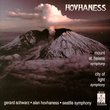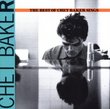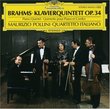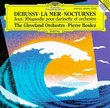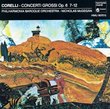| All Artists: Dvorak, Stader, Wagner, Demus Title: Requiem Members Wishing: 0 Total Copies: 0 Label: Polygram Records Release Date: 11/22/1994 Genres: Pop, Classical Styles: Vocal Pop, Opera & Classical Vocal, Historical Periods, Early Music, Modern, 20th, & 21st Century Number of Discs: 1 SwapaCD Credits: 1 UPC: 028943737722 |
Search - Dvorak, Stader, Wagner :: Requiem
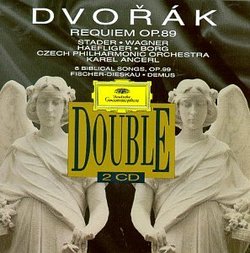 | Dvorak, Stader, Wagner Requiem Genres: Pop, Classical
|
Larger Image |
CD DetailsSimilarly Requested CDs |
CD ReviewsA fine testament to a great work - and a great conductor. Mike Willis | Trafalgar, Victoria Australia | 02/09/2000 (5 out of 5 stars) "One of the very finest conductors of Czech music, Karel Ancerl has perhaps never quite received his due, although since his death in 1973 his stocks have slowly risen, thanks in part to the heritage of his recordings with the Czech Supraphon company and also to a range of recordings issued by Tahra (particularly valuable in documenting his live performances and work in Toronto, with the Toronto Symphony orchestra which he conducted from 1968 until his death). Ancerl was the chief conductor the Czech Philharmonic from 1950 to 1968 and his distinctive, incisive and at times almost clipped way with music particularly suited Czech composers such as Janacek and Dvorak. Like Talich of the previous generation, Ancerl seemed to bring special insight into his compatriots compositions although it could be said that his style was never quite as natural or unforced as Talich. He also continued to emphasise, quite delightfully, the distinctive characteristics of the Czech PO, particularly its individual woodwind sound, and sharply accentuated string playing. This Requiem stands as a testament to Ancerl at the very height of his years as Chief of the Czech Philharmonic. The orchestra plays with marvellous bite and conviction (listen to the winds, but also the sharp, tangy strings), and the chorus, also at its peak, signs with total conviction and fervour. It would be hard to imagine a better performance. There is indeed no better version of this piece in the catalogue, including another by Ancerl with Berlin Radio forces. The sound is fine. Oddly enough, when this was released many critics preferred the Kertesz version on London/Decca with the LSO and associated forces. To my ears, however this version has nothing like the fervour of the Ancerl which is very much "the real thing" - a superb testament to a fine conductor, and a particularly fruitful period of Czech music making. The fill up is also worth having, but it is the Requiem which makes this a true classic." Dvorak Requiem Op.89 - Karel Ancerl Mr Bassil A MARDELLI | Riad El-SOLH , Beirut Lebanon | 04/06/2008 (5 out of 5 stars) "Wolfgang Amadeus Mozart's Requiem Mass in D minor was composed in 1791.That was Mozart's last brilliant composition, and one of the most superhuman and recondite of his works, not only for its artistic musical communication, but also for the disputation over how far of the music did Mozart manage to finish before his death on December 5th. 1791. His pupil, Franz Xaver Sussmayr is said to have been the `'composer'' who, later, finished the work. Many can agree with me: Mozart's Requiem remains unfinished. Listening to Antonín Dvorák Requiem I cannot but recall Mozart's. Dvorak composed his Requiem (1890) one hundred years after Mozart died and the work is one that came at the beginning of the peak of perfection in his creative period. Dvorak, exuberant and vital as ever, took full command at the construction of the mass, throwing his weight about as though he were seeing Mozart's immortal person in the background. I believe, Mozart and Dvorak were the authors of this work. Mozart's soul is there. He lives in it. This composition was performed for the first time on the 9th of October 1891, in Birmingham, England, conducted by the composer - Dvorak, his achievement opened for him the trodden path to success and glory In this recording, Karel Ancerl gives us a stupendous interpretation deserving awe and respect. The music and the voices flow in one great sad expression on generally appalling questions regarding human existence. The composition of the mass is divided in two basic parts, each of which begins with the original interconnection of several liturgical sequences commemorating the Last Supper. Dvorák inserted between "Sanctus Benedictus" and "Agnus Dei" the emotional movement "Pie Jesu," created on the base of the final text of the "Dies irae" pattern. The basic melodies in Introitus-Kyrie, Recordare, Confutalis- maledictis and Lacrymosa are Mozart's. Perhaps Dvorak could have been the best pick to finish Mozart's Requiem " Great and underrated work; passionately intense performance Mike Willis | 09/07/2001 (5 out of 5 stars) "I concur with the other reviewers on the merits of the music and this particular performance and recording. This work should be better known; it is dramatic, powerful, and has many features common to other settings of the Latin text (such as "fire music" in parts referring to flames consuming the damned). The richness of the wind parts remind one of Dvorak's wonderful works for wind instruments, as well. Though it is not as tuneful as Verdi's, it is not as "dark" as the liner notes for the (competing) Kertesz version describe it (as if a requiem should not be "dark"). It's certainly not as "dark" or "thick" in orchestral colors as that of Brahms.I have the Kertesz version and also knew it from the days of LP. And yes, it has smoother and altogether better sound, but the sound here is not in any way distracting. This performance and recording date from 1959, and there is a little tape hiss. Although the Kertesz recording dates from ten years later, and boasts sound that is in my opinion better than what one gets in most digital recordings today, I find this performance musically more intense, especially in the choral singing, which is fervent to the point of suggesting, well, drama, such as Verdi was criticized for in his setting of the Requiem.Having said that, I should note that there are no notes to speak of in this set, no text for the Requiem or the coupling (Fischer-Dieskau, always a welcome bonus, even if singing a laundry list).And the Kertesz is coupled with another fine work by Dvorak, the intimate Mass in D. I wouldn't want to be without both this and the Kertesz. If you can only get one set, the choice would be which coupling you want, I suppose."
|

 Track Listings (9) - Disc #1
Track Listings (9) - Disc #1